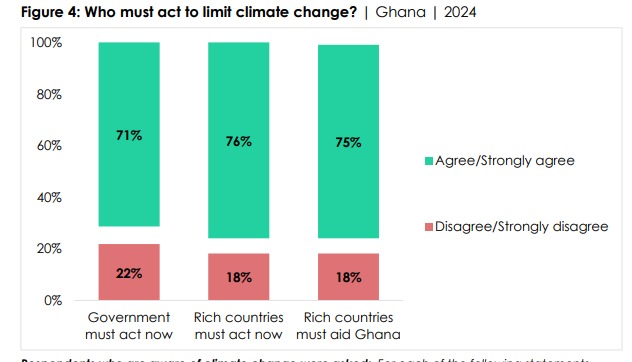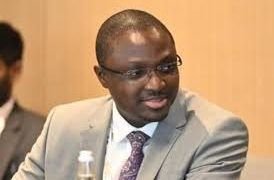Afrobarometer Survey: Majority of Ghanaians Demand Urgent Climate Action Despite Economic Costs
A recent Afrobarometer survey reveals that 71% of Ghanaians believe the government must take immediate action to address climate change, even if such measures are costly or result in job losses or other economic disruptions.
The survey highlights strong public support for comprehensive climate action, with 76% of respondents advocating for developed nations to assist Ghana through climate aid.
Support for Climate Policies
The survey indicates widespread backing for various climate-related policies, including:
- Infrastructure investment to adapt to climate change impacts (79%).
- Investments in wind and solar energy technologies (69%).
- Pressuring developed countries to provide climate aid (61%).
- Banning tree cutting for firewood and charcoal production (52%).
However, fewer Ghanaians support measures like promoting electric taxis and buses (41%) or mandating households to adopt cleaner cookstoves (37%).

Awareness and Perception of Climate Change
Despite the urgency for action, less than half (46%) of Ghanaians report being aware of climate change. Among those familiar with the term:
- 69% believe climate change is worsening life in Ghana, marking a 9% increase from 2022.
- 76% attribute climate change to human activity alone (66%) or a mix of human and natural causes (10%).

These findings underscore a growing awareness of the adverse effects of climate change, even as overall knowledge remains limited.
The findings from the survey reflect a strong public mandate for both local and international climate interventions, signaling the need for robust policies and educational campaigns to foster awareness and action.
Afrobarometer is a pan-African, non-partisan survey research network that provides reliable data on African experiences and evaluations of democracy, governance, and quality of life. Nine survey rounds in up to 42 countries have been completed since 1999.
Round 10 was launched in January 2024. Afrobarometer’s national partners conduct face-to-face interviews in the language of the respondent’s choice.








